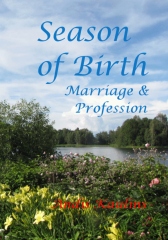Bowman v. Monsanto Co.
Adam Liptak reported at the NYTimes.com in Supreme Court Hears Arguments in Bowman v. Monsanto.
It is clear from the questioning during oral argument that Monsanto will prevail on the merits, although it appears to this observer that many commentators underestimate the judicial and legal difficulty of this case, which the Supreme Court took on because it is the first time that the patent rights to progeny of a "self-replicated" product are being decided, i.e. whether successive generations of self-replicating seeds are subject to Monsanto patents on the "original" humanly and genetically-modified non-replicated seed.
Oral argument suggests quite convincingly that the Supreme Court will not rely on some kind of conditional sales doctrine as representing some form of restrictive "license" as a limitation on the first sale doctrine. As Justice Breyer said in this regard:
"Now, they -- they thought, the [Federal C]ircuit, that there's some restriction in a license and they have a doctrine that seems to say that you can restrict licenses -- through licenses the use of a product after it's been sold. And that would seem contrary to the first sale doctrine""Obviously, the Supreme Court will be sure to set the Federal Circuit straight on its "lingering confusion" (quoting Justice Sotomayor) with respect to conditional sales. "Sales" have nothing to do with the coming decision per se.
Furthermore, the Court will also not rely on contractual limitations as the means by which patent holders must protect their rights. Patent rights as such are rights granted by the patents themselves, and not by contracts.
Rather, it is quite clear that the Supreme Court will hold that successive generations of self-replicating genetically modified and thus rightfully "patented" seeds are "copies" of the original patented seed, the "making" of which via unauthorized copies is prohibited.
Such a resolution as above of the legal problem presented by the case may appear by hindsight to be "apparent", but by no means necessarily obvious as a matter of law. Indeed, a strict view of the facts would hold that "God" makes the copies in the case of seed replication, regardless of genetic modification, even if human intervention (planting, fertilizing, watering, etc.) may also be required. In any case, the definition of "copying" here will be extended by the Court to its furthest possible limit for purposes of patent law.
It must be emphasized here in closing that the patents to the Monsanto soybeans involve the insertion of a genetic sequence into the germplasm of seeds that makes the resulting plants resistant to glyphosate, a herbicide manufactured by Monsanto, that otherwise kills other plants and weeds by inhibiting an enzyme necessary for growth.
When glyphosate is applied from the air, other plants and weeds in the field are killed while the resistant genetically modified plants survive and grow.
In other words, contrary to the situation in the upcoming Myriad case decision at the Supreme Court involving human genes, the "seed" here "created" by Monsanto has been truly "humanly" altered, even if the patent incorporates the original soybean seed or other plant seed as the object of the genetic modification. In Myriad, by contrast, there is the attempt to patent "cleaved snips" of actually existing human genes, and that of course will be denied by the Supreme Court, since the genetic code remains as is for its operative part, and is used principally as such, even if in abbreviated form.
In Monsanto there is a completely new addition to the genetics of the seed. In Myriad, one is merely using a genetics that is already there.
See the briefs to the Monsanto case at americanbar.org.

No comments:
Post a Comment